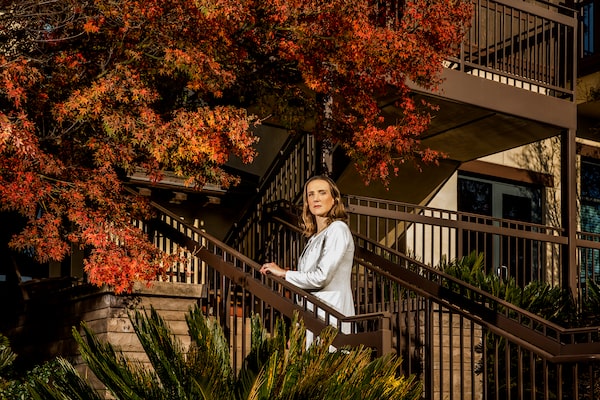
As a partner at Andreessen Horowitz, Strange is changing the face of techChristie Hemm Klok
Angela Strange
SILICON VALLEY | In bro-centric Silicon Valley, Strange is an outlier—a female partner at top venture capital firm Andreessen Horowitz. Bonus: She’s a Canadian who helped create the C100, dedicated to promoting Canadian startups in the Valley. Strange studied mechanical engineering at Queen’s before doing her MBA at Stanford. Google acquired her first startup, and Strange went on to manage the creation of Google Chrome for mobile before joining Andreessen in 2014.
You cover fintech. What trends are you seeing in the market?
Financial services are 20% to 30% of most economies, so we’re just getting started. The interesting thing is, there are almost two banking systems in the United States. Ask anyone in Silicon Valley to name a financial institution, and it would be a mainstream bank or credit card provider. But ask the 50% of people below the median income, and they would come up with all sorts of different names—usually small locations in strip malls. Last year, they accounted for $320 billion in transaction fees. More than half the population needs more help with their finances, but they have fewer options, and the options they have cost a lot more.
How are startups filling the gaps?
More diverse entrepreneurs are coming in with different angles to a previously untapped market. I’ll give you an example: One in seven families in the United States goes on and off food stamps each year—45 million people. Right now, to check your balance, you have to call a 1-800 number. We’ve funded Propel—one of whose founders grew up on food stamps—which has an app that shows your balance and helps you budget, and then says, if you went to this grocery store, your money would go further. The grocers are motivated to get these consumers because 11% of groceries in the U.S. are bought via food stamps.
What’s the business model for a company like that?
Well, the huge challenge in financial services is that customer acquisition is so expensive. An incumbent can have a crappy product but a captive audience. Or you can have the most brilliant lending algorithm but no way to get customers. So how can I get customers in a cost-effective way? Usually with a 10-times-better product. Then you use that as a wedge into the market and add additional products on top of it.
What’s been your biggest mistake as a VC?
Knock on wood, none yet. But my view is that if I don’t make any mistakes, I’m probably not taking enough risks.
What’s in your personal portfolio?
I try to keep my portfolio out of venture, because I’m already pretty heavily invested in it. I’m in the debt side—my fixed-income portfolio is invested across the financial services space, which is providing great yield. Plus, I just have a standard equity portfolio. And some crypto, of course! Andreessen has an entire crypto fund and team—that’s a pretty positive statement on where we think it’s going.
What’s your take on Canada’s tech scene?
Canada is on a sharp rise up, especially if you look at the importance of AI across every sector. Three of the four founding fathers of artificial intelligence are Canadian. In terms of developing the bench, it just takes time and for more companies to get big. So the folks at Shopify—they could be the next generation of founders.
You sat on Bill Morneau’s economic advisory council, which recommended boosting immigration by 50%. How do your views on immigration square with what’s happening in the United States?
TechCrunch put out an article a year or two ago, saying more than 50% of the unicorns were founded by immigrants. That stat speaks for itself. I think any country that does this really well is going to have a significant advantage. Immigration is already a huge part of the Canadian brand, so we should just double down on it.
You took a detour after doing your MBA to become a professional runner. Why?
My favourite quote that synthesizes this decision is, “Regret for what you’ve done can be tempered by time; regret for what you’ve not done is inconsolable.” My parents remortgaged their house so I could go for it. I got a sponsorship from Nike Canada, but I found out I’m not quite good enough to get to the Olympics.
 Dawn Calleja
Dawn Calleja